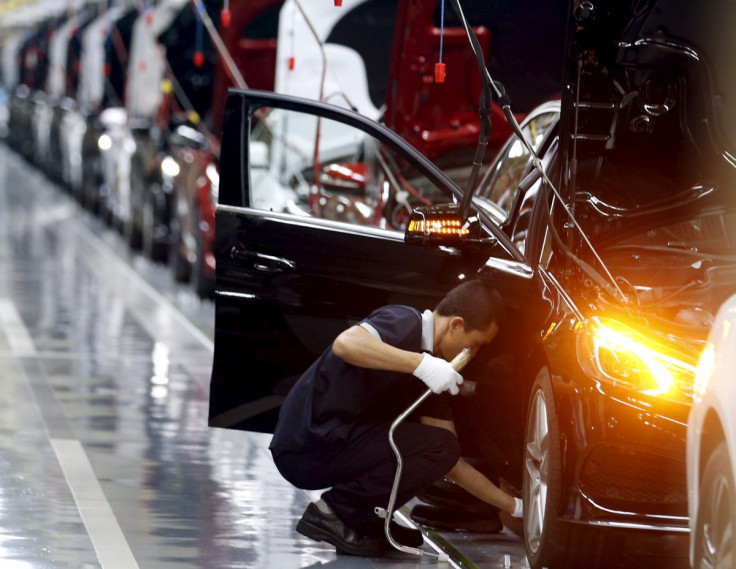China factory activity rises at slowest pace in seven months
Manufacturing PMI falls to 50.3 in April from 51.2 in March.

A private gauge of China's manufacturing sector has shown that factory activity in the world's second-largest economy expanded at the slowest pace in seven months in April.
The manufacturing purchasing managers' index (PMI), compiled by Caixin and IHS Markit, fell to 50.3 from 51.2 in March, falling short of analyst expectations for a score of 51.3.
A score above 50 indicates expansion in the sector.
The output and new orders sub-indices both declined during the month but stayed above the 50-mark, with total new business expanding at the slowest pace in seven months.
"The downward pressure on manufacturing gradually emerged in April, with all indicators weakening," said Zhengsheng Zhong, director of macroeconomic analysis at CEBM Group.
"The Chinese economy may be starting to embrace a downward trend in the near term as prices of industrial products decline and active restocking comes to an end."
Staff numbers at Chinese factories were cut at the quickest pace since January, with survey respondents citing cost-cutting initiatives and the non-replacement of voluntary leavers as reasons for the decline in the size of their workforce.
Input price inflation eased to a seven-month low amid falling commodity prices.
Meanwhile, the Chinese government's official manufacturing PMI, which is more skewed towards larger enterprises, fell to 51.2 in April from 51.8 in March.
The services sector also slowed, with the services PMI falling to 54.0 from 55.1.
China has set an economic growth target of 6.5% for 2017, lower than the 6.7% expansion recorded last year.
Premier Li Keqiang told more than 3,000 Communist Party delegates at the annual National People's Congress (NPC) in Beijing last month that the government would pursue a proactive fiscal policy and a prudent monetary policy.
A work report released by the National Development and Reform Commission at the opening of the NPC said the government would take steps to cut surplus steel and coal production.
Li also pledged to create 11 million new jobs in 2017 and downsize "zombie" companies that were underperforming.
© Copyright IBTimes 2025. All rights reserved.






















